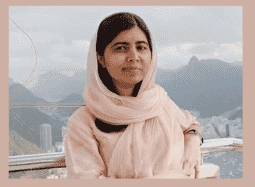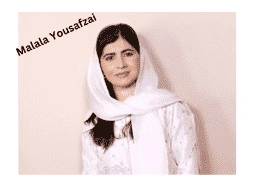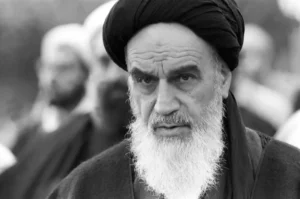Malala Yousafzai is a Pakistani activist who was born on July 12, 1997, in Swat Valley, Pakistan, while growing up, discussed in public the restriction on the educational pursuits of girls that had been implemented by the Tehrik-e-Taliban Pakistan (TTP; also known as the Pakistani Taliban).
She acquired popularity internationally when she suffered murderous harm at age 15. In 2014 Yousafzai and the Kailash Mountains Satyarthi, additionally referred to as Kailash, were awarded the Nobel Prize for Justice in recognition of their work to promote children’s rights.

Who Is Malala Yousafzai?
Malala Yousafzai frequently referred to merely as Malala, is a Pakistani female educational activist who persevered an attempt on her life at age 15 and grew the youngest candidate to be awarded the Peace Prize awarded by the Nobel Committee in 2014. Yousafzai started to fight for the education of girls when she became a child, which eventually led to the Taliban distributing a death threat against her.
In the month of October, a gunman shot Yousafzai while she returned home from high school. The activist was able to survive turned into a recipient of the Nobel Prize at age 17, and continued her efforts by her international charity, Malala Fund. She writes numerous books, which include the most popular memoir I Am Malala, and contributed to creating the 2022 Oscar-nominated documentary short Stranger at the Gate.
Early Life
Malala Yousafzai, who was born, in Swat District, while growing up in a lower-middle-class Sunni Muslim Pashtun family. Her dad, Ziauddin Yousafzai, a teacher and activist, fled the Khushal Public School, where Malala got her primary schooling. Expert in Pashto, Urdu, and English, Malala Yousafzai was profoundly influenced by her dad’s support and their conversations on education as well as politics.
Known after Malalai of Maiwand, an admired Pashtun writer and soldier, Malala’s childhood was defined by her goal to the point of becoming a doctor, subsequently changed to governance with her father’s support. At age 11, motivated by the murdered Prime Minister Benazir Ahmad Bhutto, she started promoting schooling rights, talking out about the Taliban’s inhibition of girls’ schooling.
In 2008, Malala’s advocacy acquired consideration after she spoke at a media club in Peshawar, challenging the Taliban’s rejection of her right to schooling. By 2009, she became part of the National Institute for Peace and Conflict Reporting’s Open Brains the Country program, employed to encourage conversation and change in society through schooling.
Early activism
After her BBC publication, Malala Yousafzai acquired broad coverage, showing up on national Pashto and Urdu media outlets and the Toronto Star. In the month of August 2009, she appeared on Capital Talk and started to campaign widely for female education. From 2009 to the year 2010, she headed the district’s Child Assembly of the Khpal Kor Foundation.
In 2011, she educated with the regional group Aware Girls, concentrating on rights for women and nonviolent rebellion. She received a nomination for the International Prize for Children’s Peace by Desmond Tutu, the Archbishop of Canterbury, making into the first Pakistani girl to be awarded a prize of this sort. Although she was unsuccessful, her popularity shot up
At the end of 2011, Malala Yousafzai obtained Pakistan’s initial National Youth Justice Prize from Prime Minister of Pakistan Yousaf Raza Gillani. She employed her fame to speak out for schooling, which resulted in the founding of an information technology campus and an institution of learning named in her honor. By 2012, she had established the Malala Foundation for Education and stated Barack Obama, Benazir Bhutto, and Abdul Ghaffar Khan as motivations for her campaigning.

Malala’s U.N. Speech on Malala Day
On July 12, 2013, her sixteenth birthday, Malala Yousafzai gave an inspiring address at the United Nations, the first time she spoke publicly since the Taliban assault. She promoted education and equality for women, urging international leaders to guarantee schooling for all and to conquer preconceptions. Malala stated, “The extremists are afraid of books and pens. They are afraid of women.” She highlighted that the assault only improved her settlement. The U.N. stated July 12 as “Malala Day,” with then-Secretary-General Ban Ki-moon confirming the right of schooling for every kid worldwide.
Also Read: Ali Khamenei
Jon Stewart interview
On October 8, 2013, Malala Yousafzai, at just 16, made her first significant midnight TV looks Daily Display with Jon Stewart. She was there currently to encourage her autobiography, I Am Malala, and to discuss her undergoes after the Taliban attack, as well as her representation of human liberties and girls’ education
During the discussion, Malala discussed her thoughts on the Taliban’s dangers. She described her inner conversations concerning how she would react if faced with them, highlighting how she selected to contend with harmony, dialogue, and schooling rather than aggression. Her significant and insightful reaction left Jon Stewart clearly shifted causing them to say, “I am humbled to speak with you.”
Stewart felt so motivated by Malala that he asked her to return to her talk show following the 2015 Charleston, South Carolina Church Shooting, selecting not to tell jokes and rather concentrating on Malala’s amazing bravery and tenacity.
Malala Fund
The Malala Fund, founded by Malala Yousafzai and her dad Ziauddin Yousafzai in 2013, is committed to promoting girls’ education globally. The goal of the organization is to guarantee that every girl has the opportunity to receive twelve years of free, high-quality schooling, especially those from excluded areas and neighborhoods affected by violence and destitution.
By cooperating with community groups, the Fund endorses different programs such as offering scholarships, educating teachers, and impacting legislative developments to promote equality between men and women in education.
Through its initiatives, the Malala Fund has generated significant strides toward improving educational opportunities for girls across nations like the nation of Nigeria, Pakistan, India, and Ethiopia. The Fund’s campaigns have created worldwide concern about the significance of girls’ education and resulted in changes in legislation that value rights in education.
Dependent on contributions and collaborations, the Fund keeps going to make an important contribution, helping numerous girls acquire the skills and knowledge they require to create an improved future.
Nobel Peace Prize
While returning from school to home on October 9, 2012, Malala Yousafzai was shot in the head by a Taliban gunman. The attack, claimed by the Tehrik-e-Taliban Pakistan (TTP), drew worldwide outrage and assistance.
Malala was transported by plane to Birmingham in the United Kingdom for medication, and her fight gained global support. This resulted in the establishment of the Malala Fund and an additional ten million schooling fund by Pakistani President Asif Ali Zardari.
Malala made an influential return on July 12, 2013, her 16th birthday, by communicating at the UN General Assembly. In 2013, she obtained the UN International Human Rights Prize and collaborated on I Am Malala with Christina’s Lamb.
She eventually received the Peace Prize by the Nobel Committee in 2014, being the youngest-ever laureate. Malala Yousafzai kept going through her campaigns, such as attending Oxford University and creating a girls’ school in the nation of Lebanon for Syrian refugees. Her existence and advocacy have been explored in He Named Me Malala (2015), illustrating her commitment to both schooling and human rights.

